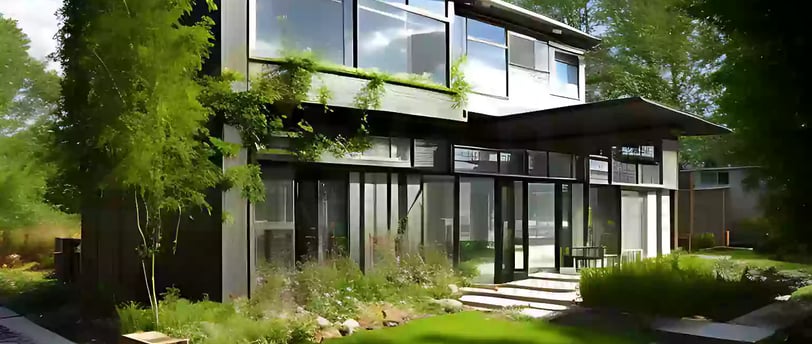“Building a Sustainable Future: The Importance of Implementing Sustainable Construction Practices”
Sustainable construction practices are becoming increasingly popular in the construction industry. With the need for eco-friendly solutions to minimize environmental impacts, sustainable construction practices are the way forward.
Avadar Infrastructures
3/25/20231 min read


What is sustainable construction?
Sustainable construction refers to the use of environmentally responsible and resource-efficient processes and materials in construction projects. The aim of sustainable construction is to reduce the environmental impact of construction projects by using renewable resources and minimizing waste.
Benefits of sustainable construction practices
Energy-efficient buildings: Sustainable construction practices aim to reduce energy consumption in buildings. Buildings constructed using sustainable practices use less energy for heating, cooling, and lighting, which reduces the carbon footprint.
Reduced waste: Sustainable construction practices focus on minimizing waste during construction, reducing landfill waste, and promoting the recycling of materials.
Improved indoor air quality: Sustainable construction practices aim to improve indoor air quality by using materials that do not emit harmful chemicals, improving ventilation systems, and reducing moisture.
Cost savings: Sustainable construction practices may require an initial investment, but they offer long-term cost savings. Energy-efficient buildings use less energy, reducing energy bills, and improved indoor air quality reduces healthcare costs.
Sustainable construction practices to implement
Use of recycled materials: Sustainable construction practices involve the use of recycled materials such as glass, metal, and plastic. The use of recycled materials reduces the need for virgin materials, minimizes waste, and saves resources.
Energy-efficient lighting: The use of energy-efficient lighting systems such as LED bulbs reduces energy consumption and greenhouse gas emissions.
Renewable energy: The use of renewable energy sources such as solar panels and wind turbines can generate energy and reduce dependence on fossil fuels.
Water-efficient plumbing: Sustainable construction practices aim to reduce water consumption by installing water-efficient plumbing fixtures such as low-flow showerheads and faucets.
Green roofs: The use of green roofs involves the installation of vegetation on the roof of buildings. Green roofs reduce the heat island effect, improve air quality, and absorb rainwater.
Conclusion
Sustainable construction practices offer numerous benefits, including energy savings, reduced waste, and improved indoor air quality. Implementing sustainable construction practices can help reduce environmental impacts, improve the quality of life, and promote a more sustainable future. It is essential for construction companies to prioritize sustainable construction practices to minimize the impact of construction projects on the environment.
Address
No : 49A, Saravana Nagar, Second Cross street, Perungudi, Chennai – 600096
Subscribe to our newsletter
Contacts
+91 80560 55199
enquiry.avadar@gmail.com
